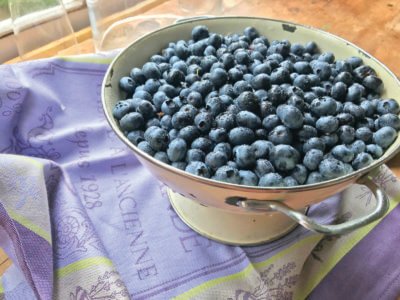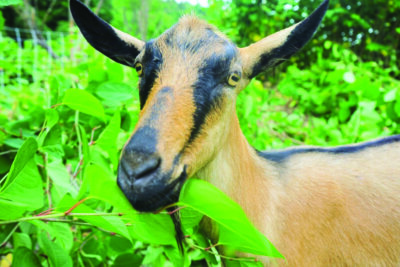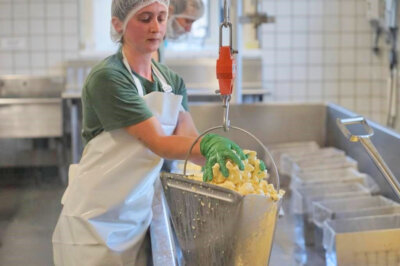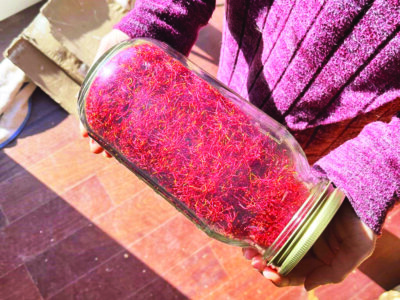New cottage food law keeps VT products in home kitchens
Peter Hopkins and his business partners were having a great year in sales for their food start up. They sold mustard, snack mixes and kimchi right out of their kitchen in Pownal.
But then they had to step out of their local holiday festival because their business, Hoppy Valley, along with many other cottage food producers, was only allowed to make $10,000 annually before they were required to get licensing and inspections from the state’s health department.
Cottage foods are products that don’t require refrigeration, temperature or time control. They include jams and jellies, candy, granola, popcorn and home-canned pickled vegetables or fruits made with state-approved recipes. A cottage food operator is someone who produces these products on their personal property.
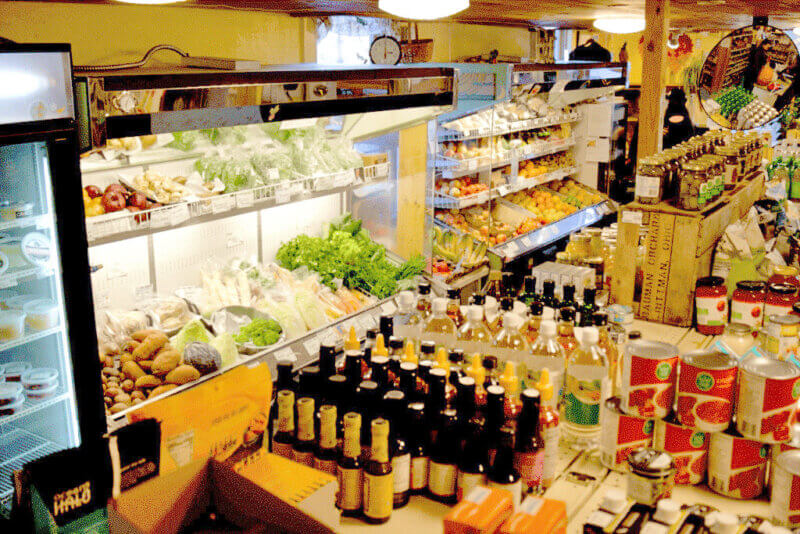
“Food entrepreneurship is a cherished, centuries-old tradition in Vermont,” said Hopkins, who has spent years making meals for family, friends and community members. “We’re trusted and encouraged to do so for our communities but are not trusted or encouraged to sell food from these same kitchens.”
He wanted to expand his earnings, so he reached out to his local representatives.
Prior to the 2025 legislative session, Rep. Jim Carroll, D-Bennington, proposed to update the cottage food threshold for sales to $50,000, but the bill never budged.
But in February, Rep. Jonathan Cooper, D-Pownal, joined 35 co-sponsors in H.401, which asked the House Committee on Agriculture, Food Resiliency and Forestry to raise the bar to $30,000.
This threshold will allow for the cottage food products that are not generally associated with food-borne illnesses more latitude in the marketplace, said Abbey Willard, the agriculture division director of the Vermont Agency of Agriculture, Food and Markets.
On July 1, local producers like Hopkins celebrated as that bill became Act 42, which brought together both cottage food operators and home bakeries, which previously had a separate threshold of $6,250.
Hopkins said the changes in the law will make a significant contribution to the incomes of many small businesses.
“For those who are little guys like me, this allows them to pursue their livelihood without as much apprehension,” Hopkins said.
A 2022 ranking from the Institute of Justice, a non-profit public interest law firm, graded 70 different homemade food programs across 50 states. Vermont scored low, with a D+ for Home Bakeries and a C for Home Processors.
“That pulled hard at some of my Green Mountain heartstrings,” Hopkins said in response to the ranking. His representative, Cooper, called Act 42 a food resiliency bill.
Prior to its passage, “Vermont had one of the most restrictive small-scale production laws in the country,” Cooper said.
Willard said giving food producers more room before they hit the $30,000 ceiling could allow them more opportunities to experiment with products and recipes.
“We want food manufacturers to be successful, we want them to use local ingredients, we want this to help farmers and we want this to help food businesses,” Willard said. “We want consumers to be able to buy Vermont products first.”
During testimony on H.401, the Department of Health shared some common violations they saw during home bakery inspections, like a failure to maintain product temperatures, toilet and handwashing issues and violations regarding thermometers or chemical test kits.
The new bill now requires all cottage food producers to take a free online training and file for a cottage food exemption, found through the Department of Health’s website.
“We think that the law is striking the balance between supporting these cottage food producers and manufacturers while also protecting public health,” said Meg McCarthy, the Department of Health’s Compliance and Enforcement Advisor in the Environmental Health Division.
“I like to do things by the rules,” Hopkins said. “Tell us how to do it and we’ll do it for sure.”
Caroline Sherman-Gordon, a lobbyist for Rural Vermont, a farmer advocacy group, said the bill was a good compromise between state regulations and cottage food producers, while expanding access to the state’s food system.
“Many people want to engage in the food system even if they don’t have a farm by becoming a food manufacturer,” Sherman-Gordon said.
Throughout the session, as the bill was negotiated and altered, the one thing Hopkins kept in mind was making sure that it was representative of Vermont food producers.
“Let’s make this something that is singular for Vermont, worthwhile for Vermont and helps quality of life for Vermonters,” Hopkins said.
(Via Community News Service, a University of Vermont journalism internship.)
Related Stories
Popular Stories
If you enjoy The Charlotte News, please consider making a donation. Your gift will help us produce more stories like this. The majority of our budget comes from charitable contributions. Your gift helps sustain The Charlotte News, keeping it a free service for everyone in town. Thank you.
Andrew Zehner, Board Chair






